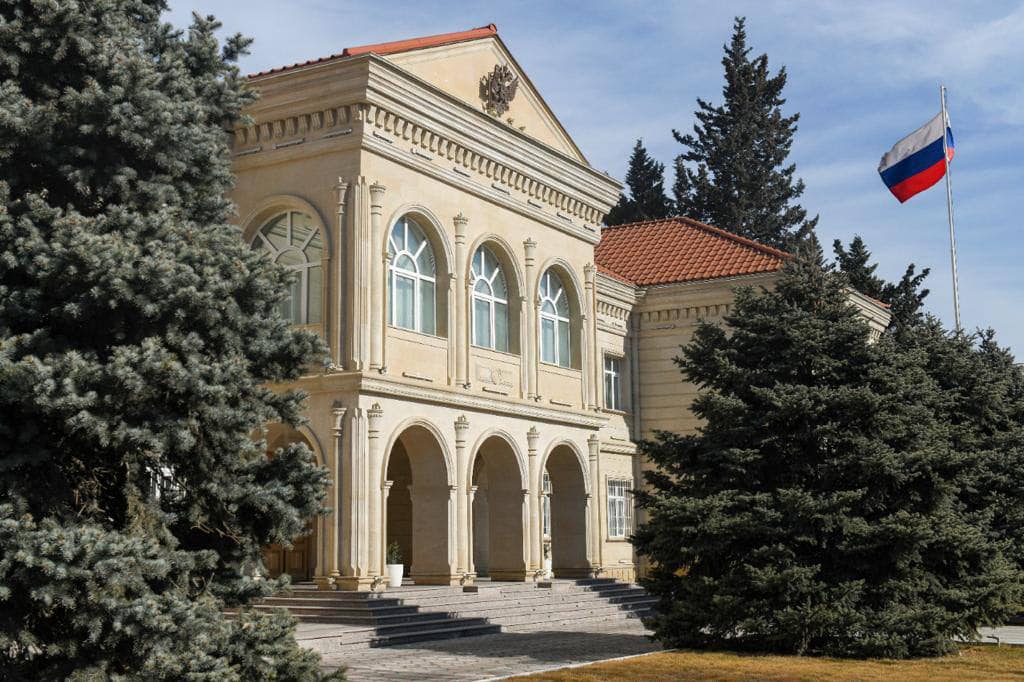EU in the South Caucasus: Can Brussels become a geopolitical player?
EU in the South Caucasus
Events in Georgia and the EU’s response have brought the geopolitical context of the European Union‘s presence in the South Caucasus into focus. Azerbaijani political analyst Farhad Mammadov has analyzed the EU’s influence and presence in the region under current conditions.
- Can the port of Chabahar help Armenia overcome its lack of access to the sea? Opinion
- What is the “Georgian Charter” and who will sign it? Details of the president’s plan
- Why does Russia need a consulate in Khankendi? Comment from Baku
What is the EU in the South Caucasus?
The EU is an important and primary economic partner for the region. Over a long period, the EU has established its own system of relations with the countries in the region. The resulting picture looks like this:
- Georgia has systematically engaged in European integration: visa-free travel, EU institutional programs, and the DCFTA free trade agreement.
- Armenia, although a member of the CSTO and the EAEU, has signed the CEPA agreement and remains open to EU institutional activities (EU mission, CEPA expansion).
- Azerbaijan has pursued strategic projects in energy and transportation through individual cooperation.
After the 44-day war, the EU initiated a negotiation track between Azerbaijan and Armenia, promising geopolitical benefits for the EU. The Brussels format was initially effective, with Charles Michel fulfilling his role as mediator. The EU increased its presence in the region, and it truly seemed that the EU could become a geopolitical entity. It was the EU as an institution, rather than individual EU countries.
However, the countries that founded the EU, particularly France, have subordinated the central EU institution in Brussels to their own interests. Paris has actively used the EU to engage in the negotiation process, pushing Charles Michel to the background. The culmination was the meeting in Granada and the subsequent statement signed by Charles Michel. Azerbaijan did not participate in the meeting and expressed disagreement with the Granada statement. This statement marked the end of the Brussels negotiation format and simultaneously ended the EU’s geopolitical initiative in the region.
Moreover, France sought to build on this “success” by lobbying for Georgia to receive EU candidate status, even though the Georgian government had not requested it. In April, through the US/EU-Armenia summit, the EU decided to outline a geopolitical line in the South Caucasus, prioritizing the Yerevan-Tbilisi axis.
The Georgian government reacted to the EU’s geopolitical moves by starting the process of adopting laws that Brussels disapproves of.
What is the current situation?
After all these events, we have the following picture:
- Georgia: Despite declared systematic integration into the EU, the country is now very close to facing sanctions from the US and the EU.
- Armenia: While remaining in the CSTO and increasing its presence in the EAEU, it plans to deepen its integration with the EU.
- Azerbaijan: Although there is a memorandum on strategic cooperation in energy, no new agreement has been reached; there is complete alienation from the European Parliament and mutual distrust, as central EU institutions have fallen under France’s influence. Additionally, there is potential for expanded cooperation in the transport sector along the EU-Central Asia route.
As a result of recent EU activities, Brussels faces significant challenges in the region. If sanctions are imposed on Georgia, the EU will fail to establish a strategic axis, and communication routes to Central Asia will be jeopardized.
The EU’s mistake lies in its central institutions’ inability to create their own agenda, instead ceding established relationships with regional countries to individual member states like France.
Charles Michel or the next president of the European Council could restore the EU’s role in the region by retracting the signature from the Granada statement, rejecting the dependence of EU policy on the policies of individual member states, particularly France, and normalizing relations with the new Georgian government after parliamentary elections. Otherwise, even the EU’s initial positions in the region may quickly dissipate.




















